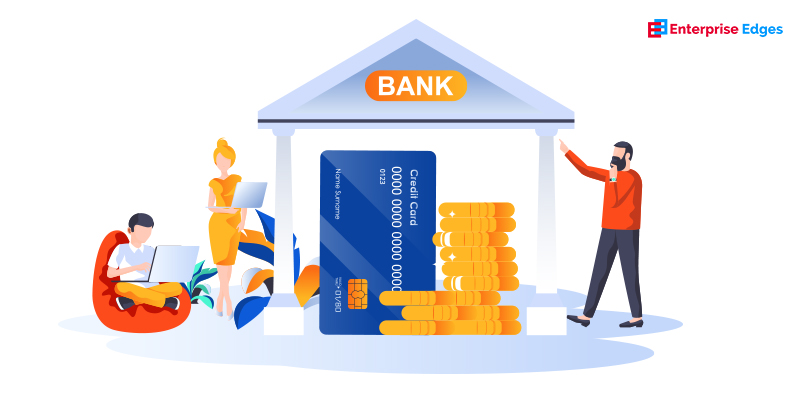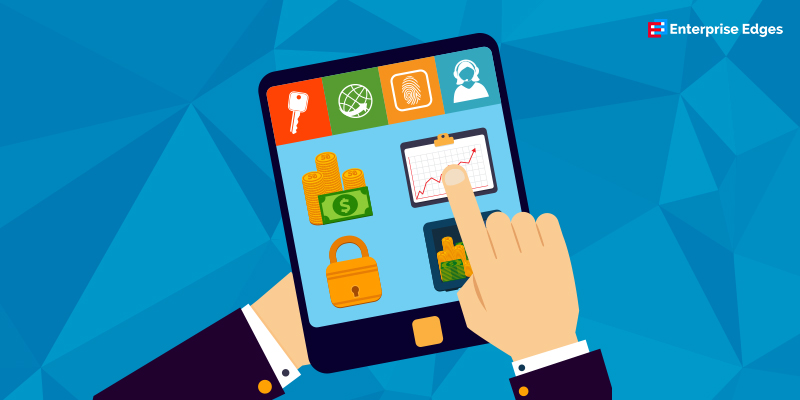Technological innovations have transformed all aspects of life. It has changed the way we travel, communicate, entertain, cook, and shop. Similarly, technology has impacted the way we handle money. Banking is one of the primary sectors of the economy affected by ever-evolving technology. The latest technological trends have given rise to modern techniques of banking such as online banking, internet banking, AI personal assistants, e-wallets, online bill payment, and many more.

Gone are the days when visiting your bank branch was a necessity. Long queues were a common sight at the bank branches. Paying bills, money deposit, opening accounts, closing accounts, loan approvals, and money withdrawal were tedious tasks. However, there is a massive shift in the plan that continues to transform the traditional banking landscape. The change can be largely attributed to technologies like artificial intelligence, machine learning, core banking solutions driven by IT platforms, and wearables.
Now, would you open an account in a bank that does not provide online banking services? For most of us, the answer is no. Online banking is one of the many innovations of technologies in the banking sector. What online banking can do for customers is incredibly amazing. Online banking has revolutionized the banking sector and businesses around the world. You can manage your finances, shop, pay bills, save, and get a loan from the comfort of your sofa. Let’s learn more about this incredibly impressive banking technology.
What is Online Banking?
Online banking is often referred to as internet banking. However, it is an electronic banking system that uses internet and modern technologies to empower customers of a bank or financial institution and conduct different kinds of financial transactions. For online banking, a bank or financial institution must have an official website powered by the core banking system and various related features.
A bank’s online banking services offers customers almost every service that a conventional bank branch does. Among many services, customers using web banking can deposit, transfer, manage accounts, open and close accounts, pay bills online, virtually interact with their bank and customer service department, and much more. Today, every bank is offering online banking services through websites with desktop and mobile apps. And the best part is, most of the banks are not charging any additional fees for these services.
More about Online Banking
Over the years, online banking has reduced the number of banks visits a person made. They are not required to visit their bank branch to perform basic banking activities and transactions. What makes it so successful is the power it gives its customers to perform various transactions without stepping out of their comfort zone. But every bank customer cannot enjoy this privilege because it requires them to register for their bank’s online banking service.

For the registration, they must have access to the internet, and a computer or mobile phone, through which they can access the net banking link of their bank. There you must register as a new user by filling some information such as account number, registered mobile number, branch code, and more. Once that is done, a password is created using a top-secret OTP or one-time password. This allows you to create a temporary or permanent user ID and password. Using this, you can log in to your account and use the online banking services offered by your bank.
It is important to note, that these steps may vary from bank to bank and institution to institution. At the same time, services offered over at any bank’s web page may vary for every bank. While some banks may offer basic transactions, others might be offering more than that like applying for credit, stop cheque, changing of information, and more.
Online banking services can be categorized into transational and non-transactional activities. Non-transactional activities primarily include viewing account summary and balances, checking recent transactions, viewing account history, downloading bank statements in several formats, requesting check books, debit cards, and downloading forms and applications to activate M-banking, E-banking and more. Transactional activities include funds transfer, payments, bill payments, investments, deposits, credit card applications, and more.
Most banks still refrain from providing some valuable services online such as cashier’s check, wire money, bank drafts, mortgages, unlimited cash withdrawals, safe deposit box, notary services, and more. This is where banks still believe in meeting face-to-face before completing the process.
A Brief History of Online Banking
The history of online banking dates back to the 1980’s. The concept emerged simultaneously with the development of the world wide web. The first bank to offer internet banking services was The Bank of Scotland. It used a television set and telephone to send transfers and pay bills. This service was called “Home link” and it formed the basis of what is today called online banking.

The development work for such services continued, but a major breakthrough was made almost after a decade in 1994 when Stanford Federal Credit Union became the first financial institution in the U.S. to offer internet banking to all of its customers. In 1996, the first-ever internet-only bank was launched called Net Bank.
By 2001, eight banks in the USA and 3 million customers had access to online banking services. Meanwhile, in India, ICICI Bank became the first bank to offer internet banking services in 1997. Today, online banking is one of the primary services offered by most of the Indian and foreign banks present in the country. It is a standard practice that many banks provide free of cost to their customers. It has become the future of the banking industry.
How Online Banking Is Impacting Banking Sector
Online banking is a result of the adoption of technological innovations in the banking industry. The digital age has led to fierce competition in the banking sector. Banks must stay relevant in the market in order to gain market share and retain customers. There is a massive shift in the preferences of a consumer. From traditional methods, they are now adopting digital and multi channel models simply because it allows them to carry out activities conveniently and faster. At the same time, it gives customers more control than they had before. Online banking is a service with great potential that has the potential to enhance bank performance.

Today, internet banking has become an essential service to provide. Many studies show the young, educated, and salaried as the active users of e-banking services. The older adults and people residing in suburban and rural areas are yet to catch up with the trend. Meanwhile, internet banking has greatly improved customer satisfaction, shown a slump in visits at the bank branches, reduced waiting time for customers, reduced fees for transactional processes, and enhanced bank efficiency.
The Perks of Online Banking
The need for brick-and-mortar banks is slowly fading away with the rising trend of online banking.
- There are no monthly fees to be paid when it comes to using online services provided by your bank. So much can be done without spending a penny. Truth be told, it has enabled banks to save operational costs and provide services at a much cheaper price.
- Banking has become a lot more convenient nowadays because it is available to us 24/7. Unlike before, when banks were open just 9-5, money withdrawal and transfers were a hassle. Now, it can be done anytime and anywhere.
- What makes online banking a more attractive option for banks and customers, is the speed and efficiency it provides. Whether you want to transfer money or apply for a loan, you do not have to wait in line at your bank branch. With online services, there is nothing like queues or waiting time. All you need is to fill up some information and make your request.
- One of the greatest advantages of online banking is bill payment. Writing cheques, fill out forms to pay bills, stand in line in office hours, all of this is passe. Instead, a few clicks can help you achieve so much in a few seconds. The best part is that you can automate bill payment and never have to worry about forgetting to pay the bill.
- Online services allow banks to save money, and this enables them to pass the benefit to their customers. This means that there are a number of banking activities that can be carried out without any fee such as checking balance, account summary, downloading account statement.
- In addition, banks are offering higher interest rates to customers. As for online-only banks, they have attractive interest rates that cannot be acquired by traditional bank setups.
- It has enabled banks to provide better customer services. Managing and enhancing your personal financial health is much easier with online banking services. You can keep up with your account status in real-time and acquire customised solutions in no time.
- The biggest disadvantage of online banking is security. This does not mean that online banking is not safe. It is deemed safer than traditional banking methods. It eliminates the risk of getting robbed and theft. However, it is suggested to implement some precaution when using banking websites on public computers. It is best to erase all cookies after use. Also, create a difficult and lengthy password that is hard to guess and copied. Finally, never give away your personal and banking information to just anyone and never respond to emails and texts that demand sensitive account information.
Future of Online Banking
Despite slow development, online banking shows a great deal of promise. It has evolved from the initial days of internet banking and it continues to evolve. The future of online banking will likely be easier and safer. Technologies like block chain are being introduced to reduce fraud and make banking safe zone for consumers. Other than that, smart bots and automation are the future. It is expected to eliminate the need for call centers and customer support teams and make banking a highly sophisticated sector in today’s digital age.